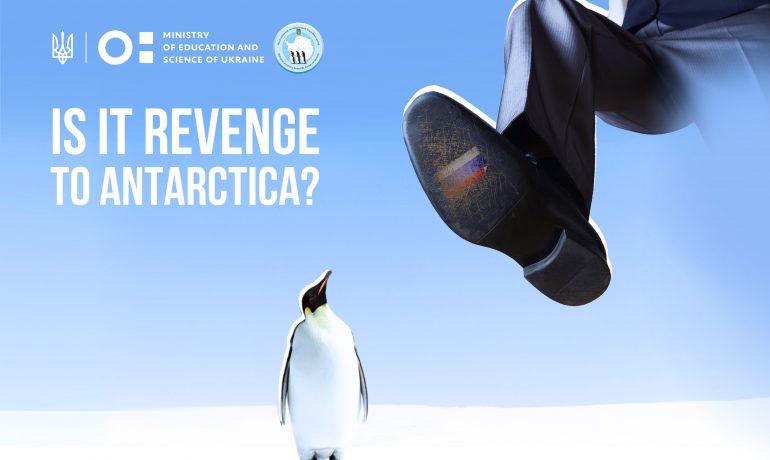Ukraine and 17 other parties to the Antarctic Treaty have blocked the granting of Belarus the status of a Consultative Party to the Treaty, and therefore the right to participate in the decision-making. The concept of a “multipolar world”, which Russia wants to implement instead of the concepts of international law and world order, has been also blocked.
This was announced by Evgen Dykyi, Director of the National Antarctic Scientific Center, following the results of the 46th Antarctic Treaty Consultative Meeting, which was closed on May 30 in India. NASC together with the Embassy of Ukraine in the Republic of India represented our country at this event.
“For the second year, Russia has been actively lobbying for Belarus to be granted the status of a Consultative Party to the Treaty, although it only has a seasonal station in Antarctica. This status gives the right of the decision-making and veto power on decisions, which are adopted only by consensus. Of course, we have blocked this decision, since Belarus continues to support Russia’s military aggression against Ukraine and cooperates with scientific institutions of the occupied Crimea, in particular on Antarctic research. Moreover: we ensured that the meeting documents officially recorded the reason why the Republic of Belarus did not get into the Antarctic club, although Russia and China insisted on depoliticization of this issue,” explained the NASC head.
Russia’s concept of a multipolar world about the need to take into account the “special cultural models” of different countries in Antarctica did not receive support either, because the whole world has already seen the consequences of the implementation of such a policy in Ukraine.
Instead, Russia and its main Antarctic ally China blocked resolutions on… gender equality and environmental issues. These are the following initiatives that are important for the conservation of Antarctic nature:
- creation of a new special protected area near Akademik Vernadsky station: on the islands and coast of the continent. This ambitious Ukrainian initiative provides additional protection for vulnerable sites that could be negatively impacted by Antarctic tourism (which is now rapidly growing);
- granting the emperor penguin the status of a protected species. The results of ten-year monitoring of the colonies of these birds have shown their rapid decline. And modeling shows that the emperor penguin could be on the verge of extinction by the end of this century;
- preventing the spread of microplastics that pollute the unique nature of Antarctica.
“As you can see, Russia responds to the blocking of political issues by stopping environmental initiatives, which once again confirms that the true intentions of its presence in Antarctica is mining. Now it is prohibited, but in 20 years the situation may change. There are already reports in the Western press that Russia has discovered huge reserves of gas and oil in Antarcticа and may primarily focus on their extraction.
It is clear that we are approaching a major global battle for the resources of the icy continent. This, in particular, is evidenced by the initiative of Saudi Arabia to join the Treaty, which is also one of the events of the ATCM 46,” said Evgen Dykyi.
He emphasized that, in such situation, the presence of Ukraine as a Consultative Party to the Antarctic Treaty greatly hinders Russia.
“To get rid of us, the aggressor launched a large information campaign in Ukraine.
In our society, they are trying to form the opinion that Antarctica should be abandoned “for the sake of drones” – although the funds for the Ukrainian Antarctic program are allocated from a separate, non-military part of the state budget and cannot be redistributed to defense. Instead, the Russian Federation itself announced billion-dollar investments for work in Antarctica for the next two years, and also classified the volume of these expenditures on the same level as military spending”, – said NASC director.
We remind you that 56 countries are parties to the Antarctic Treaty, but only 29 of them including Ukraine have a Consultative Party status.31


